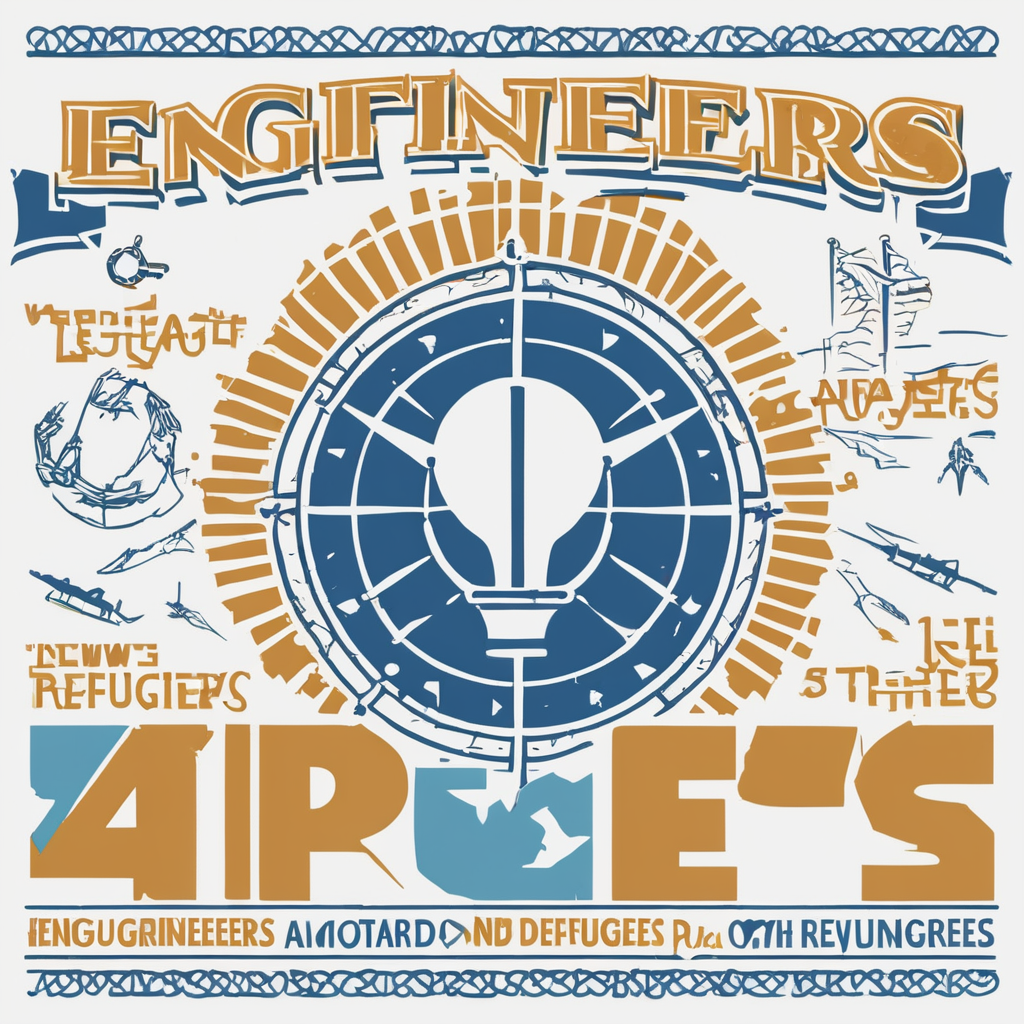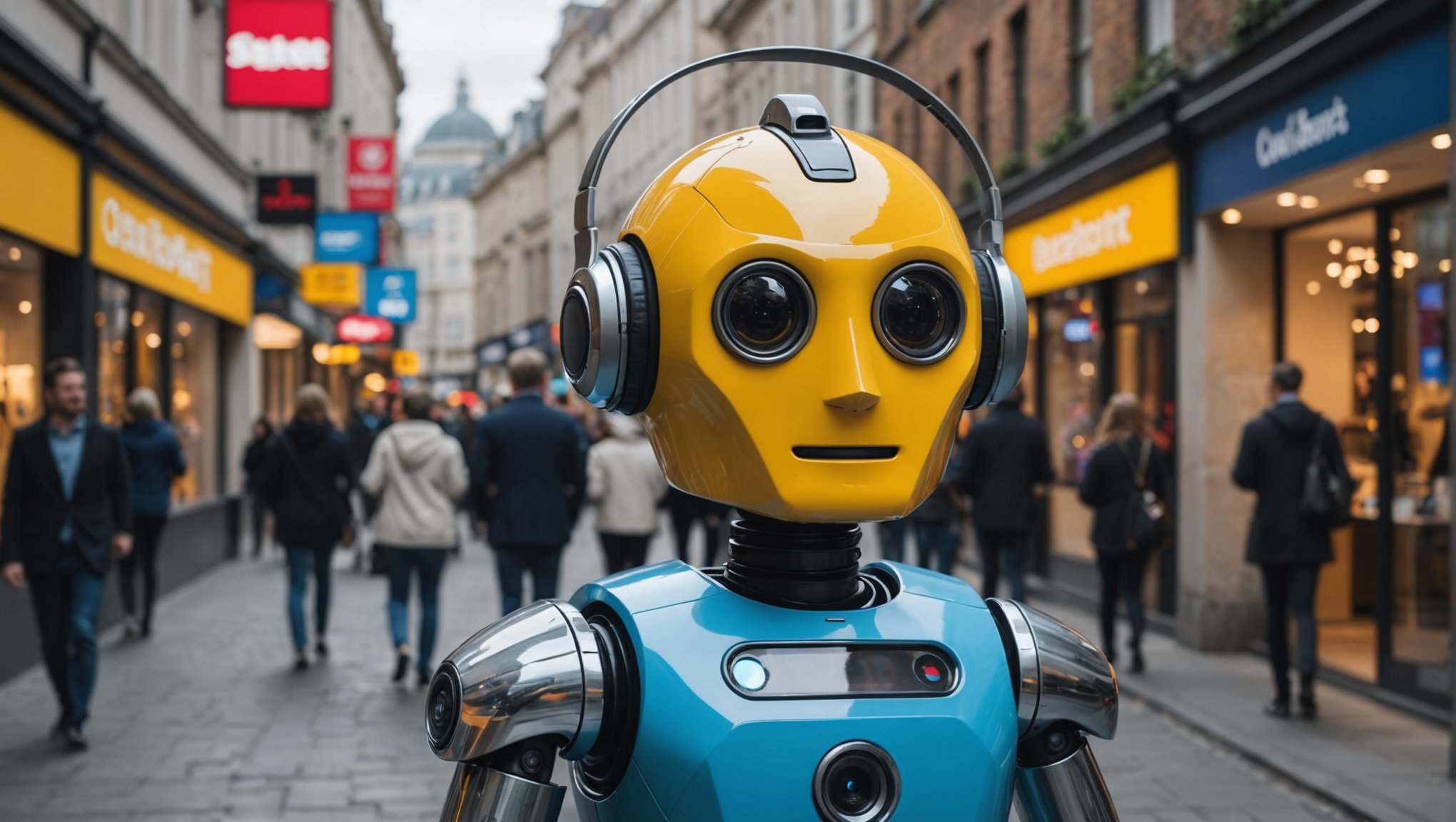Unlocking the Advantages of AI Chatbots for Elevating Customer Service in UK Enterprises
In the rapidly evolving landscape of customer service, AI chatbots have emerged as a game-changer for businesses in the UK. These intelligent assistants are not just a trend; they are a fundamental component of modern customer service strategies, offering a plethora of benefits that can transform the way companies interact with their customers.
The Rise of AI Chatbots in Customer Service
AI chatbots have been around for a while, but their current sophistication is unprecedented. These chatbots are no longer just simple automated responders; they are powered by advanced artificial intelligence, natural language processing (NLP), and machine learning. This technology enables them to understand and respond to customer queries in a way that is increasingly indistinguishable from human interactions.
Also to see : Crafting an Effective Remote Work Policy: A Comprehensive Guide for UK Businesses
Instant Answers 24/7
One of the most significant advantages of AI chatbots is their ability to provide customers with instant answers around the clock. Unlike human agents who have limited availability, chatbots can respond immediately, regardless of the time of day, holidays, or time zones. This feature is particularly beneficial for businesses that operate globally or have customers in different time zones.
For example, companies like Lush and H&M have implemented AI chatbots that serve as personal shopping assistants, providing immediate help with product information, sizing, availability, and other customer queries. This not only reduces customer wait times but also enhances customer satisfaction and loyalty.
Also read : Unleashing the Power of AI: Transforming Waste Management in the UK for a Greener Future
Reducing Costs and Scaling Support
AI chatbots are highly cost-effective and can significantly scale support operations without the need for additional human resources. By automating frequent questions and routine inquiries, chatbots reduce the workload on human agents, allowing them to focus on more complex and high-value tasks.
Cost Efficiency
Businesses can save substantial amounts by using AI chatbots. For instance, HelloSugar, a salon chain, automates 66% of its customer queries using AI agents, saving $14,000 per month. This savings enabled the company to double its number of locations without increasing its headcount.
Scalability
AI chatbots can handle an increasing number of inquiries without the need for additional resources. This scalability is crucial for businesses experiencing growth or seasonal spikes in customer service demands. Companies like Endeksa have seen a 59% reduction in waiting times and a 138% increase in leads by using automated ticketing systems with smart routing and prioritization.
Enhancing Agent Efficiency
AI chatbots not only handle customer queries independently but also assist human agents in various ways, thereby boosting their efficiency.
Automating Repetitive Tasks
Chatbots can automate repetitive tasks such as collecting key information from customers and routing issues to the right service representatives. For example, Lush’s AI agent collects customer information upfront and adds tags and labels to incoming tickets, giving human agents the context they need to solve issues faster. This efficiency gain saves Lush roughly 5 minutes per ticket and 360 agent hours each month.
Assisting with Complex Cases
By handling common enquiries, AI chatbots free up human agents to work on complex cases that require their skills. This division of labor ensures that customers receive the best possible support, whether it’s through the immediate response of a chatbot or the detailed assistance of a human agent.
Personalization and Enhanced Customer Experience
AI chatbots can significantly enhance personalization by connecting to backend systems and pulling relevant customer data during interactions.
Access to Customer Data
Chatbots can access and utilize customer data such as purchase history, preferences, and account details to tailor their responses and recommendations. For instance, an AI agent can suggest products based on a customer’s previous purchases or offer personalized assistance with troubleshooting issues.
Multilingual Support
AI chatbots can communicate in multiple languages, ensuring timely and multilingual support worldwide. This feature is particularly beneficial for businesses with a diverse customer base. Companies like ING have different chatbots for different markets, all using NLP to understand customer needs better.
Omnichannel Support
AI chatbots enable businesses to provide seamless and consistent interactions across various channels.
Consistent Interactions
Chatbots can engage with customers through their preferred methods, such as live chat, messaging apps, or social media. This omnichannel support ensures that customers receive consistent and timely assistance regardless of the channel they use. For example, Zendesk AI agents provide 24/7 multilingual support across all preferred channels, aligning seamlessly with the brand’s persona.
Key Features of AI Chatbots for Customer Service
When selecting an AI chatbot for customer service, several key features are crucial to consider.
No-Code Chatbot Builder
A no-code chatbot builder simplifies the setup process, making it possible for businesses of any size to deploy chatbots without extensive IT resources. This feature is particularly useful for small and medium-sized enterprises that may not have the technical expertise to develop complex chatbot systems.
Natural Language Processing (NLP)
NLP is fundamental in enabling chatbots to comprehend queries in various forms, ensuring interactions are as human-like as possible. Companies like ING use NLP in their chatbots to better understand customer needs across different markets.
Comprehensive Knowledge Database
A vast and accessible repository of information allows chatbots to answer queries accurately and consistently. This database ensures that chatbots can provide high-quality support anytime and anywhere.
Real-World Examples and Success Stories
Several companies have successfully integrated AI chatbots into their customer service strategies, achieving significant improvements in customer satisfaction and operational efficiency.
H&M
H&M’s customer service chatbot, known as the H&M Virtual Assistant, serves as a personal shopping assistant. It provides round-the-clock support, offering advice on sizing, personalized outfit suggestions, and addressing customer questions regarding returns and store information. This has led to improved customer satisfaction and a rating of 4.5/5 stars.
AirHelp
AirHelp’s chatbot has improved the average response time by up to 65% and monitors social media channels in 16 languages to alert the customer support team of potential issues. This has revolutionized how agents work, enabling them to assist more customers in less time.
Endeksa
Endeksa’s use of an automated ticketing system with smart routing and prioritization has slashed waiting times by 59% and achieved a 138% increase in leads. The chatbot reached a helpfulness rate of up to 88%, leading to an overall increase in customer satisfaction of over 10%.
Opportunities and Challenges
While AI chatbots offer numerous opportunities, they also come with some challenges that businesses need to consider.
Opportunities
- Access to Big Data: AI-powered platforms can access and analyze big data instantaneously, providing personalized assistance to customers.
- Consistency: AI chatbots ensure consistent treatment for every customer, unlike human agents who may vary in their responses.
- Scalability: Businesses can scale their operations without the need for additional human resources, making it cost-effective and efficient.
Challenges
- Inaccurate Results: AI chatbots, especially those using generative AI, may sometimes provide inaccurate results. For instance, the British government’s GOV.UK Chat has warned users about this possibility.
- Human Moderation: While AI chatbots are highly efficient, they still require human moderators to ensure smooth operations and handle complex or emotionally charged queries.
Practical Insights and Actionable Advice
For businesses looking to integrate AI chatbots into their customer service strategies, here are some practical insights and actionable advice:
Choose the Right Technology
- Evaluate Features: Ensure the chatbot has features like NLP, a comprehensive knowledge database, and a no-code builder to simplify setup and customization.
- Consider Scalability: Select a chatbot that can handle increasing volumes of customer inquiries without the need for additional resources.
Train and Customize
- Train on Real Interactions: Use real customer interactions to train the chatbot, ensuring it can handle complex requests and understand the nuances of customer experience.
- Customize the Chatbot: Tailor the chatbot to align with your brand’s persona and integrate it with your existing systems to provide seamless support.
Monitor and Improve
- Continuous Learning: Allow the chatbot to learn from customer interactions and improve over time. This can be achieved through machine learning algorithms that update the chatbot’s knowledge base regularly.
- Feedback Loop: Establish a feedback loop to monitor the chatbot’s performance and make necessary adjustments to ensure it meets customer needs effectively.
AI chatbots are revolutionizing the customer service landscape by providing instant answers, reducing costs, enhancing agent efficiency, and offering personalized and omnichannel support. As technology continues to evolve, it is clear that AI chatbots will remain a crucial component of modern customer service strategies.
In the words of Technology Secretary Peter Kyle, “We are going to change this by experimenting with emerging technology to find new ways to save people time and make their lives easier, as we are doing with GOV.UK Chat.”
By understanding the benefits, features, and real-world applications of AI chatbots, businesses can unlock new levels of efficiency, customer satisfaction, and growth.
Detailed Bullet Point List: Benefits of AI Chatbots for Customer Service
- Instant Response: Deliver real-time responses to customer inquiries, reducing wait times and improving overall satisfaction.
- Cost Efficiency: Automate routine inquiries, reducing the workload on human agents and lowering operational costs.
- Scalability: Handle increasing volumes of customer inquiries without the need for additional resources, making it cost-effective and efficient.
- Personalized Experiences: Tailor conversations based on customer data, offering personalized recommendations and support.
- Reduction in Human Error: Automate responses to frequently asked questions, minimizing the chances of incorrect information being relayed to customers.
- Enhanced Customer Experience: Provide fast, personalized responses tailored to each customer, enhancing the overall customer experience.
- Omnichannel Support: Offer consistent and seamless interactions across various channels, ensuring customers receive timely assistance regardless of the channel they use.
Comprehensive Table: Comparison of AI Chatbot Features
| Feature | Zendesk AI Agents | Tidio Lyro | ING Chatbots |
|---|---|---|---|
| No-Code Builder | Yes | Yes | No |
| Natural Language Processing (NLP) | Yes | Yes | Yes |
| Comprehensive Knowledge Database | Yes | Yes | Yes |
| Multilingual Support | Yes | Yes | Yes |
| Omnichannel Support | Yes | Yes | Yes |
| Customization | Yes, intuitive builder | Yes, user-friendly interface | Yes, market-specific chatbots |
| Scalability | Yes, effortless scaling | Yes, handles up to 70% of inquiries | Yes, handles high volumes |
| Cost Efficiency | Reduces costs by automating routine tasks | Reduces support expenses, cuts down average response times | Reduces workload on human agents |
By leveraging these features and understanding the real-world applications of AI chatbots, businesses in the UK can significantly enhance their customer service operations, leading to improved customer satisfaction, reduced costs, and increased efficiency.











